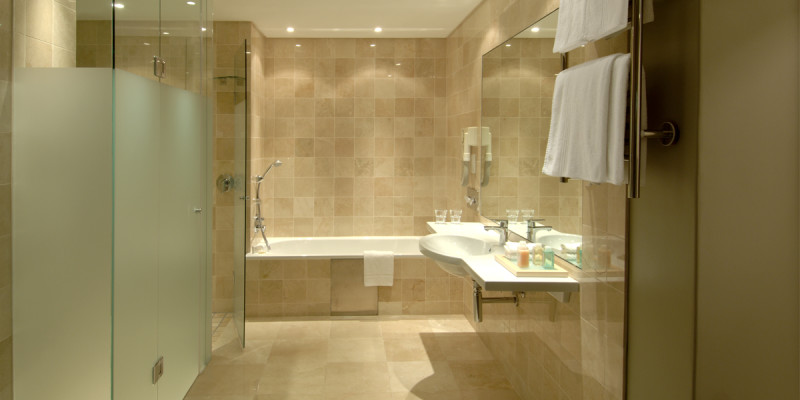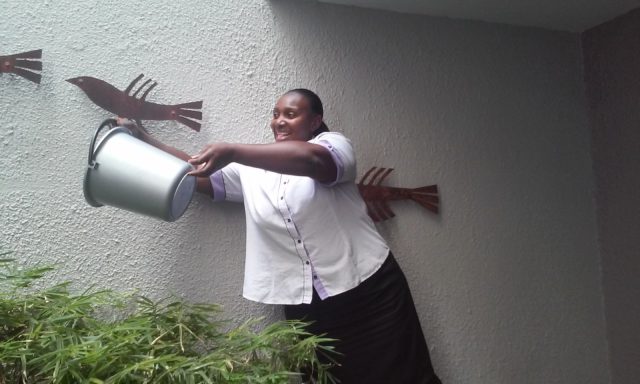EVERY DROP COUNTS: CONSERVING WATER IN CAPE TOWN
As South Africa’s Western Cape province battles the worst drought in over a century, the city of Cape Town – the tourist hotspot in southern Africa – is on high alert as its dams reach critically low levels. While the longed-for winter rains have arrived, there is concern on the impact that below-average rainfalls will have on the region’s water supply going into another hot summer season filled with thirsty tourists.
While locals have become accustomed to life under the city’s onerous water restrictions, visitors to the city may not be aware of the situation and merrily make use of the free-standing Victorian tub with a view. But, by and large, the local hospitality industry is doing a sterling job in educating guests on the need to conserve the region’s water, and have put in place a raft of measures to reduce consumption.
While those polite notices asking us to reuse towels have long been a staple of hotel bathrooms, hospitality managers in the city are now actively assisting guests to cut their water usage. The Vineyard Hotel in Cape Town’s leafy suburb of Newlands, for example, has found an easy way to accomplish this: they’ve confiscated the bathplugs. With a polite sign explaining the situation, and the reason a plug is lacking, guests are requested to take a water-saving shower rather than languid bath. But this is the hospitality industry, after all, and if a guest feels they absolutely have to draw a bath the front desk will (perhaps begrudgingly) send up a plug.
But even those guests that heed the call and hop in the shower aren’t done yet: the hotel has hung waterproof stopwatches in each shower to help travellers stick to the ‘two-minute’ shower rule requested by the authorities. The Vineyard team has also invested heavily in water-wise infrastructure; is planning for greywater use in the hotel plumbing; and uses borehole water for its gardens and swimming pools.

It’s a rare Capetonian who doesn’t have a bucket or two for collecting greywater while they shower, but the Townhouse Hotel in the city centre went one step further with the purchase of 107 buckets: one for each of its rooms. Each day the housekeeping staff – dubbed the ‘bucket brigade’ – remove the buckets to water the hotel gardens and borders on surrounding traffic islands, reducing demand on municipal water supplies and ensuring visitors enjoy a lush green greeting. “We are committed to eco-friendly systems and practices”, says General Manager Jacqueline Williams, “and the shower-bucket project is a visible illustration of these values.”

With the onset of winter, a number of hotels have also chosen to close off their swimming pools in a bid to save water. Speaking to the Cape Times, General Manager of the Radisson Blu Hotel Waterfront Debra Sivertsen said: “As concerned Cape Town citizens, we would like to minimise our water usage as and when we can. As a hotel group we are acutely aware of acting in a sustainable manner where possible. We believe local and international guests will understand.” Similar initiatives are underway at gyms and spa facilities in the city, where saunas, steam rooms and indoor pools have been closed.
But saving water hasn’t always required new infrastructure or revising guest amenities: just a little thinking outside the box. The One&Only Cape Town is cleaning its upmarket transfer vehicles using waterless car-wash services, while a clever trick used by many hotels is to collect unfinished bottled water from restaurant tables and use it for cleaning floors. Likewise, at Greenhouse Restaurant in The Cellars-Hohenort Hotel the kitchen crew use the leftover water from all ice buckets to wash down the kitchen floors at the end of service.
It’s a subtle change, but one that can have an enormous impact. Whether you’re a traveller planning a visit to Cape Town, or an operator working in the region, the Western Cape is open for business and welcomes globetrotters with open arms. But please do remember: every drop counts.











